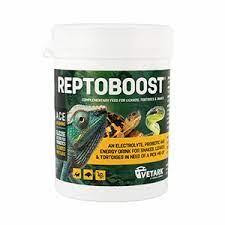Our beloved pets are more than just companions; they are cherished members of our families. To ensure their overall health and happiness, it's crucial to pay attention to their digestive health. Just like humans, pets can experience digestive issues, which can lead to discomfort and a decreased quality of life. In this comprehensive guide, we will explore a wide range of pet digestive supplements that can help maintain and improve your furry friend's digestive well-being.
Probiotics for Pets
Probiotics are beneficial microorganisms that promote a healthy balance of gut bacteria in both humans and pets. They can aid in digestion, reduce gastrointestinal discomfort, and strengthen the immune system. Probiotic supplements designed specifically for pets are available in various forms, such as capsules, powders, and treats. These supplements can be particularly useful for pets with sensitive stomachs or those undergoing antibiotic treatment.
Digestive Enzymes
Digestive enzymes are essential for breaking down food and absorbing nutrients. Some pets may have enzyme deficiencies, leading to digestive issues. Digestive enzyme supplements help compensate for these deficiencies and improve nutrient absorption, reducing gas, bloating, and diarrhea. These supplements are often recommended for pets with conditions like exocrine pancreatic insufficiency (EPI) or chronic pancreatitis.
Fiber Supplements
Fiber plays a crucial role in regulating bowel movements and preventing constipation or diarrhea in pets. Fiber supplements, such as psyllium husk or pumpkin puree, can be added to your pet's diet to promote regularity. These supplements can be especially helpful for pets on low-fiber diets or those prone to gastrointestinal issues.
Prebiotics
Prebiotics are non-digestible compounds that provide nourishment to beneficial gut bacteria. They work in synergy with probiotics to maintain a healthy gut microbiome. While prebiotics are naturally present in some pet foods, supplements are available to boost their intake. Incorporating prebiotics into your pet's diet can enhance the effectiveness of probiotics and promote overall digestive health.
L-Glutamine
L-Glutamine is an amino acid known for its ability to repair and protect the gastrointestinal lining. It can be particularly beneficial for pets with inflammatory bowel disease (IBD) or other gastrointestinal disorders. L-Glutamine supplements help reduce inflammation, alleviate discomfort, and support the healing process in the gut.
Herbal Remedies
Certain herbs can aid in digestion and soothe an upset stomach in pets. Chamomile, ginger, and fennel are some examples of herbs that can be used to create herbal digestive supplements for pets. These natural remedies can be especially useful for pets prone to digestive upset due to stress or dietary changes.
Omega-3 Fatty Acids
Omega-3 fatty acids, commonly found in fish oil supplements, offer numerous health benefits for pets, including improved digestion. They have anti-inflammatory properties that can help manage digestive conditions like inflammatory bowel disease (IBD) and reduce gastrointestinal inflammation. Omega-3 supplements also support overall wellness by promoting healthy skin and coat.
Antacids
Just like humans, pets can experience acid reflux and indigestion. Antacid supplements can help neutralize excess stomach acid and provide relief from symptoms like heartburn and nausea. These supplements are often recommended for pets with gastroesophageal reflux disease (GERD) or frequent stomach upset.
For More Info:-
cheapest pet prescriptions online






Comments